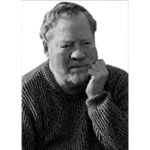Anomalous Sensitivity: The HISS of the ASP – David Ritchey (Is.16)
 David Ritchey is continuing his exploration of Anomalous Cerebral Dominance, which he now calls “Anomalous Cerebral Laterality (ACL),” that he began in his Journal article of 1993. “The role of neurological differences in facilitating past-life experiences.” In the paper below he presents the concept of the “Anomalously Sensitive Person (ASP).” Ritchey has developed a questionnaire, the “Holistic Inventory of Stimulus Sensitivities (HISS),” to identify the characteristics of “ASPs.” The HISS is now in its fourth and final round of testing, with over 500 participants. Here he shares with us his preliminary results from the 66 participants in the third round of testing.
David Ritchey is continuing his exploration of Anomalous Cerebral Dominance, which he now calls “Anomalous Cerebral Laterality (ACL),” that he began in his Journal article of 1993. “The role of neurological differences in facilitating past-life experiences.” In the paper below he presents the concept of the “Anomalously Sensitive Person (ASP).” Ritchey has developed a questionnaire, the “Holistic Inventory of Stimulus Sensitivities (HISS),” to identify the characteristics of “ASPs.” The HISS is now in its fourth and final round of testing, with over 500 participants. Here he shares with us his preliminary results from the 66 participants in the third round of testing.
Introduction
In an article that appeared in Volume VII, No. 1 of … Read the rest

